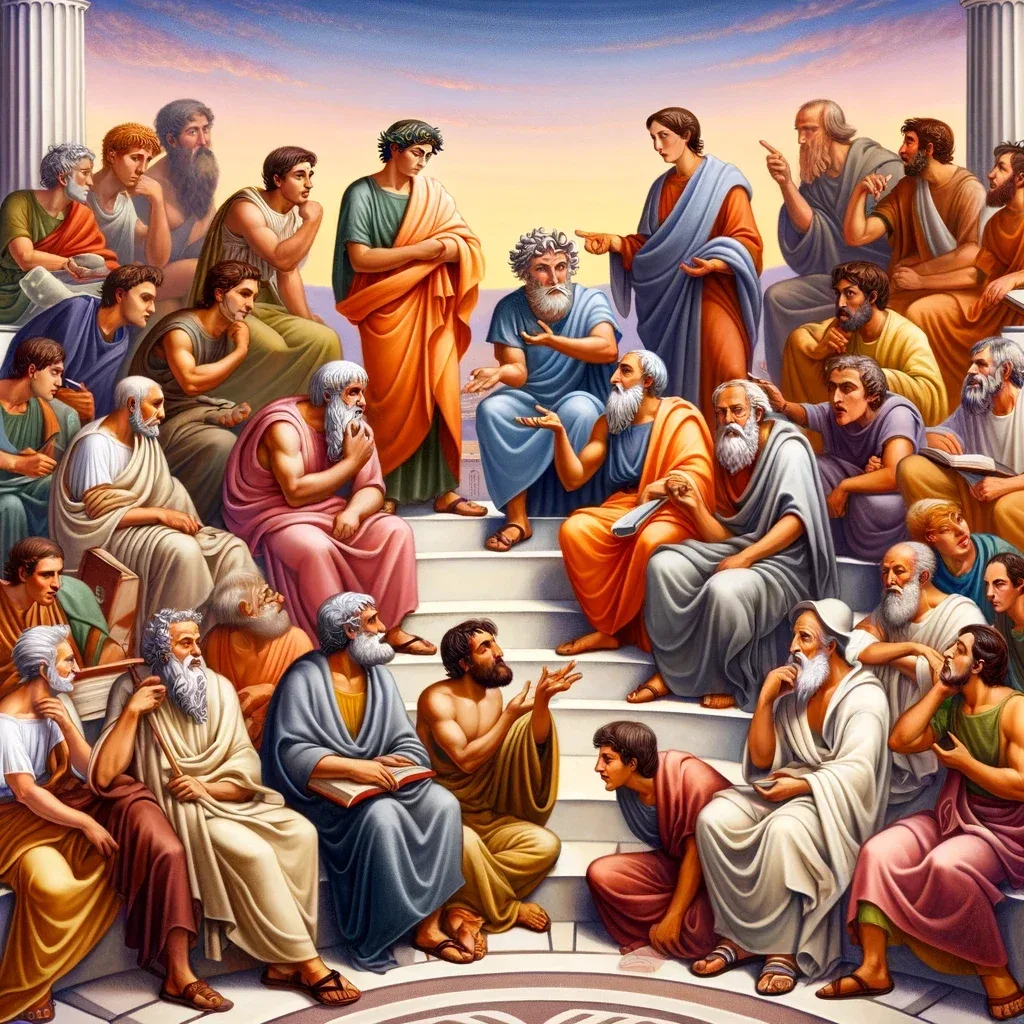Epicureanism and Stoicism are two schools of philosophical thought from Ancient Greece often seen as opposing in their approaches to life and ethics. However, despite the differences, there are notable similarities between the two philosophies that deserve to be explored. This article aims to unpack these similarities by offering a deeper look at how these two ancient schools align in certain fundamental aspects of their doctrines.

Historical and Philosophical Context

Origins and Founders
Epicureanism, founded by Epicurus in the XNUMXth century BC, and Stoicism, established by Zeno of Ciceus in the early XNUMXrd century BC, emerged in a period of great social and political change in Greece. Both schools sought to provide a path to happiness and a virtuous life.
Spread and Influence
These philosophies were not limited to Greece, spreading throughout the Hellenistic world and, later, the Roman Empire, significantly influencing Western thought.
Main Texts and Teachings
Although many of the original writings have been lost, the works of later philosophers such as Seneca, Epictetus, and Lucretius offer valuable insights into the doctrines of Stoicism and Epicureanism.
Fundamental Similarities

Search for Happiness and Virtuous Life
Both philosophies place the pursuit of happiness and virtuous living at the center of their teachings. Epicureans and Stoics believed that true happiness is achieved through virtuous living.
Importance of Self-Reliance
Epicureans and Stoics valued self-sufficiency. Both believed that true peace and contentment come from within and should not depend on external factors.
Rationality and Control over Passions
Both Stoicism and Epicureanism emphasize the importance of rationality and control over passions and desires, considering them crucial to achieving serenity and happiness.
Differences in Perspective

Epicureanism: Pleasure and Absence of Pain
Epicureanism considers pleasure, especially the absence of pain and disturbance, as the greatest good. However, this does not mean indulgence, but rather a search for moderate and sustainable pleasure.
Stoicism: Virtue and Reason
Stoicism places virtue and reason above all. For the Stoics, living according to reason and in harmony with nature is the path to happiness.
Practical Implications and Modern Applications

Teachings in Everyday Life
The teachings of both Epicureanism and Stoicism have practical applications in everyday life, promoting a balanced lifestyle, the search for wisdom and self-control.
Influence on Contemporary Thought
These philosophies continue to influence contemporary thinking, especially in areas such as ethics, psychology, and the pursuit of well-being.
Conclusion
The similarities between Epicureanism and Stoicism reveal that, despite their differences, both philosophies share a common core in their search for happiness, emphasizing the importance of self-sufficiency, rationality and control over passions. This article highlights how these ancient teachings are still relevant and applicable in the modern world, offering a path to a fuller, more meaningful life.
FAQ about Similarities between Epicureanism and Stoicism
In this FAQ, we explore frequently asked questions about the similarities between Epicureanism and Stoicism, two ancient philosophies that continue to influence modern thinking.





